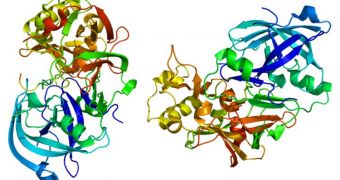According to the conclusions of a new study conducted by experts at the Northwestern University (NU), it would appear that a series of compounds researchers want to use for new Alzheimer's drugs may in fact harm memory.
This is the exact opposite effect to what researchers are looking to obtain. They explain that drugs based on BACE1 inhibitors have been under development for quite some time now, but add that the chemicals were proven to have a negative effect on neurons in the latest study.
What the team was able to uncover was that drugs based on BACE1 inhibitors were interfering with the formation of new neurons, a process that is essential to the development and consolidation of new memories. The investigation was carried out in lab mice.
At this point, these conclusions do not imply that these medications need to be removed from the market. Rather, the research is meant to bring the issue into focus, perhaps making other teams curious as to what the full effects of such drugs may be.
Although BACE1 inhibitors have been used in clinical trials conducted on humans, the US Food and Drug Administration (FDA) never approved the medication for human use. Regardless, several large pharmaceutical companies are pursuing its development.
Details of the investigation were presented yesterday, February 20, at the annual meeting of the American Association for the Advancement of Science (AAAS 2012), in Vancouver, Canada. The presentation was held by NU professor of cell and molecular biology Robert Vassar.
He told attendants that the new investigation does not invalidate BACE1 inhibitors as a potential cure against Alzheimer's. However, the investigators cautioned that researchers conducting more in-depth analyses of this class of chemicals would do well to pay attention to these discoveries.
These drugs rely on a very simple operating principle – inhibit the enzyme BACE1, which has been demonstrated in past studies to play a role in the formation of amyloid beta proteins. The latter are the primary drivers behind the formation of neural plaques that affect nerve cells.
“These BACE1 blockers might be useful at a specific dose that will reduce the amyloid plaques but not high enough to interfere with the [neural] wiring. Understanding the normal function of BACE1 may help us avoid potential drug side effects,” Vassar told colleagues, as quoted by LiveScience.

 14 DAY TRIAL //
14 DAY TRIAL //